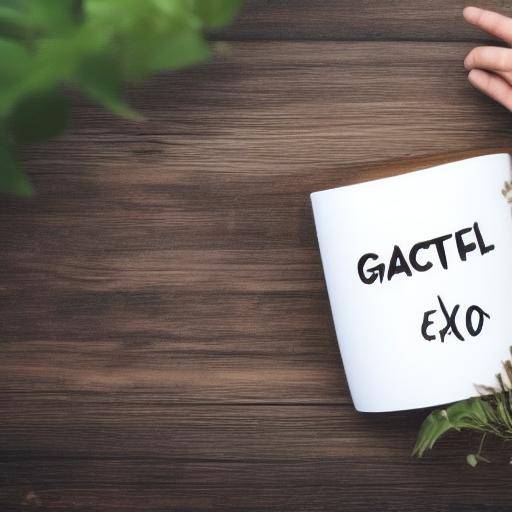
Gratitude is a powerful feeling that can have a significant impact on personal well-being. By practicing gratitude, you can experience positive changes in your perspective of life, your interpersonal relationships and your mental health. In this article, we will thoroughly explore the role of gratitude in personal well-being, the practice of gratitude and its relationship with personal development. We will discover how gratitude can be a powerful tool to cultivate happiness and emotional well-being, as well as practical strategies to integrate it into your daily life.
Introduction
Gratitude is a human quality that has been valued throughout history in various cultures and traditions. Today, science supports its benefits for personal well-being. As we move forward in this article, we will know closely how gratitude can be a catalyst for a more full and meaningful life.
History and Background
The Meaning of Gratitude throughout History
Gratitude has been recognized as a virtue in many philosophies and religions throughout history. In ancient Greece and Rome, gratitude was seen as a noble and essential quality for virtuous life. In the context of Christianity, gratitude is considered a fundamental attitude towards God and others. In addition, in Eastern traditions such as Buddhism and Confucianism, gratitude has been promoted as an integral part of good character and harmonious relations.
Evolution of the Scientific Understanding of Gratitude
Over the centuries, gratitude has been the subject of academic research, and in recent decades, positive psychology and well-being science have deepened their effects. Current studies have shown that the practice of gratitude is associated with greater satisfaction in life, positive emotions, better interpersonal relationships and greater resilience to adversity.
Demonstrated Benefits of Gratitude
Research has revealed that cultivating gratitude can have positive effects on physical and mental health, including stress reduction, sleep improvement, promotion of positive emotions and building stronger social connections.
Strategies to Cultivate Gratitude in Daily Life
Now that we understand the importance and benefits of gratitude, it is crucial to know how to incorporate it into our daily lives. The practice of gratitude may include expressing gratitude to others, keeping a daily of thanksgiving, performing acts of goodness and recognizing blessings in our lives.
Comprehensive analysis
Impact of Gratitude on Mental Health
Gratitude has proven to be a protective factor against depression, anxiety and stress. By focusing on what we have instead of what we lack, we can change our perception and promote greater satisfaction with life.
Connection between Gratitude and Interpersonal Relations
Expressing gratitude to others strengthens relationships and fosters a sense of connection and mutual support. Gratitude-based interactions can nurture trust and empathy in interpersonal relationships.
Gratitude and Resilience Practice
Gratitude can serve as an emotional damper during difficult times, promoting resilience and helping us find a sense of hope and positivity even in challenging situations.
Personal Development through Gratitude
Growing gratitude can foster personal growth by helping us focus on the positive, developing empathy and strengthening our ability to overcome obstacles.
Comparative review
Gratitude and Personal Welfare: What is the Relationship?
Personal well-being and gratitude are closely related. The practice of gratitude can be a catalyst to improve emotional and mental well-being, contributing to a general sense of happiness and satisfaction with life.
The Importance of Gratitude Practice in Comparison with Other Personal Development Strategies
Compared to other personal development strategies, the practice of gratitude stands out for its ability to promote a positive mentality, improve mental health and strengthen relations with others.
Intersection between Gratitude and Personal Development
Gratitude can be seen as an essential component of personal development, as it fosters self-reflection, emotional growth and building a positive mentality that drives self-development.
Practical Tips and Accessible Tips
Incorporate Gratitude in Daily Routine
Performing a practice of daily gratitude where we identify three things for which we are grateful, can be an excellent first step to integrate gratitude into our routine.
Express Appreciation to the Hamas
Expressing sincere thanks to the people around us, both at everyday and special times, strengthens the connections and fosters more meaningful relationships.
Maintain a Gratitude Journal
Taking a diary where we note our experiences, emotions and things we are grateful for, helps us reflect on the positive aspects of our lives and cultivate gratitude.
Industry Perspectives and Expert Reviews
Vision of Experts in Positive Psychology
Positive psychology experts emphasize the importance of gratitude as a powerful tool to promote positive emotions, strengthen relationships and increase satisfaction with life.
Impact of Gratitude on the Labor Context
In the workplace, the practice of gratitude has shown improvement in the working environment, strengthening the sense of employee ownership and promoting resilience in times of adversity.
Implications of Gratitude in Mental Health
Gratitude has been linked to better mental health, including reducing depression, managing stress and promoting resilience.
Case Studies and Real Life Applications
Impact of Gratitude on the Life of People
Examples of individuals who have incorporated the practice of gratitude into their lives and have experienced a significant transformation in their emotional well-being and the perception of life.
Applications of Gratitude in Different Contexts
Cases of organizations, schools or communities that have implemented programmes of gratitude and have noted improvements in general welfare and social dynamics.
Future Trends and Predictions
Integration of Gratitude in Education
Gratitude is increasingly included in educational programs as a way to promote emotional well-being and resilience among students.
Use of Gratitude in Technology
Technology is being used to develop applications and tools that encourage the practice of gratitude, suggesting a trend towards their integration into everyday life through digital media.
Continuous Research on Gratitude and Welfare
Scientific research is expected to continue exploring the effects of gratitude on well-being, which can lead to revolutionary discoveries and practical applications in various fields.
Conclusion
In short, gratitude has the power to transform our lives by promoting personal well-being, improving relationships and fostering emotional growth. By adopting the practice of gratitude as a fundamental pillar of personal development, we can cultivate a positive and resilient mentality that will guide us to a more full and meaningful life.
Frequently asked questions
How can I begin to practice gratitude if I have never done it before?
Starting a practice of gratitude can be as simple as taking a few minutes each day to reflect on the things we are grateful for. Keeping a journal of gratitude can also be an effective tool to start.
Can gratitude really improve my emotional well-being?
Yes, many studies have shown that gratitude is associated with greater satisfaction in life, positive emotions and greater resilience to adversity. Growing gratitude can have a significant positive impact on your emotional well-being.
How can I express gratitude to others in a meaningful way?
Expressing gratitude significantly implies being genuine and specific in your gratitude. Recognizing and thanking the specific actions of others can strengthen relationships and generate a more significant impact.
Are there cultural differences in the understanding and practice of gratitude?
Yes, understanding and expressions of gratitude can vary according to culture. It is important to take into account cultural differences when practicing gratitude, and to adapt our expressions of gratitude so that they are appropriate and respectful in different contexts.
Is gratitude relevant in the working environment?
Yes, gratitude in the working environment can improve morale, strengthen relationships between colleagues and promote a positive working climate. The practice of gratitude can also contribute to resilience and emotional well-being at work.
Is gratitude a way to evade or minimize the challenges in life?
No, cultivating gratitude does not imply ignoring the challenges or difficulties in life. On the other hand, gratitude can provide a framework to address the challenges with a more positive mentality and promote emotional resilience during difficult times.
What is the difference between gratitude and conformism?
Gratitude implies appreciating and recognizing the positive aspects of the life, interactions and contributions of others, while conformism implies passively accepting the circumstances without aspiring for positive change. Gratitude fosters appreciation, while conformism can limit personal growth.
In conclusion, gratitude can play a fundamental role in our emotional and personal well-being. By practicing gratitude consciously, we can nurture our happiness, improve our relationships and strengthen our personal development.






















































